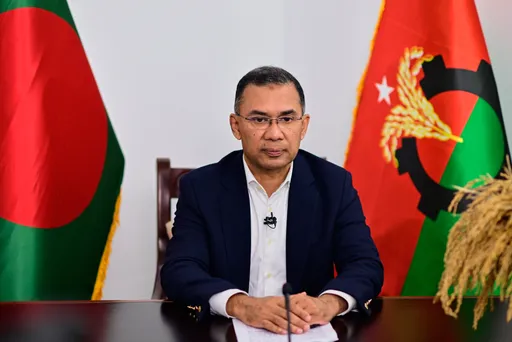Washington has decided to make a move for its long-drummed peace plan for Palestinians and Israelis through an “economic workshop” that aims to rally wealthy investors from Europe and the Middle East in Bahrain next month to lay out a financial plan.
Nine months ago, US President Donald Trump pledged that his administration would come up with a concrete plan, which he referred to as the “deal of the century”.
Since then, however, there has been no clear disclosure about details of the ambitious plan, making many experts suspicious on the true intentions of the Trump administration, which has been well-known with its strong, pro-Israeli stances.
Trump’s plan has been developed and will have been apparently implemented by Jared Kushner, the president’s son-in-law and his senior adviser, who is also a wealthy Jewish-American businessman with close relations to Israel’s hardliner Prime Minister Benjamin Netanyahu.
“Economic progress can only be achieved with a solid economic vision and if the core political issues are resolved. We look forward to presenting our vision on ways to bridge the core political issues very soon,” Kushner said.
Despite Kushner’s emphasis on the importance of resolving “core political issues”, there will be no discussion on them at the Bahrain meeting, according to American officials.
Palestinian authorities have also said that they have not been discussed about the meeting at all. Palestinian Authority said that it will boycott the meeting.
A regional economic plan?
The location of the meeting, Bahrain, also tells part of the story.
Beside Netanyahu, who indicated that Israel will annex the West Bank like it did the Golan Heights from Syria, Kushner’s staunch allies have been Saudi-UAE alliance, which leads the Gulf bloc against the Iran-led Resistance Front in the Middle East, to date.
Kushner wants to use the Gulf money to fund its allies in Egypt, Jordan and Lebanon, building a regional package that will include investments in Gaza and the West Bank, according to US officials. Diplomats and deputies think that the US goal for the regional package is valued at nearly $70 billion, according to The New York Times.
Trump and Kushner have mostly followed an agenda, which prioritises economic argument over political causes. As a result, the Bahrain meeting has been designed to address economic issues first, bringing up a coalition that will then go after political problems.
Kushner’s peace plan is coming after a Netanyahu victory, which has further emboldened Israel’s hardliners against Palestinians. The Netanyahu government has recently increased its pressure over Palestinians, even expelling several UN-sanctioned peace monitors from the country.
Feeling the political momentum on their side, Kushner and Netanyahu might imagine that it’s the right time to use financial means in order to secure a Palestinian surrender.
Richard Falk, an American-Jewish expert on the Palestinian conflict, said in his previous interviews with TRT World that recent regional developments are “all part of a Netanyahu-led strategy to compel a Palestinian surrender”.
In the last two years, with his “unconditional support” to Israel, Trump has also cut aid to Palestinians in an attempt to corner the nation into surrendering to Israel.
According to Falk, Israel wants to force Palestinians to accept Israeli victory as a reality, then Tel Aviv can think about “an economic peace” that can spur improvement in Palestinian lives.
“The basic policy is to increase the suffering of Palestinian people to a point where they surrender or give up the idea of resistance for a national struggle and then, reward that acceptance by improving the economic conditions for keeping them as second-class political participants in Israel, requiring renunciation of any Palestinian claim to self-determination,” Falk said.
The Bahrain meeting appears to aim to create a political atmosphere where Kushner and his Gulf allies alongside Israelis can discuss possibilities of “an economic peace.”
But experts draw a grim picture about the plan.
“No matter how compelling a picture they paint of what life could be like in Gaza and the West Bank...the fact is you can’t trade Palestinian views on compromises on Jerusalem, statehood and sovereignty for a chicken in every pot, a computer in every house, aid and trade,” said Aaron David Miller to the Wall Street Journal, an experienced peace-builder, who is now working for the Wilson Center.
Robert Satloff, the executive director of The Washington Institute, which is a pro-Israeli US think-tank, thinks the implications of the plan would be even worse. Satloff interviewed with Kushner in early May, hosting him in the institute’s annual conference. After the interview, Satloff wrote an article titled “Jared Kushner’s peace plan would be a disaster”.
Satloff wrote that even Kushner “concede(s)” that the peace plan’s “failure was the most likely option, calling it the ‘smart money bet’”, which mainly aims to galvanise a kind of regional cooperation among Washington’s Gulf allies, Israel and countries like Egypt, Jordan and Lebanon.
“The only way to protect the long-term viability of the best aspects of the Kushner plan is to kill the plan,” Satloff said.























